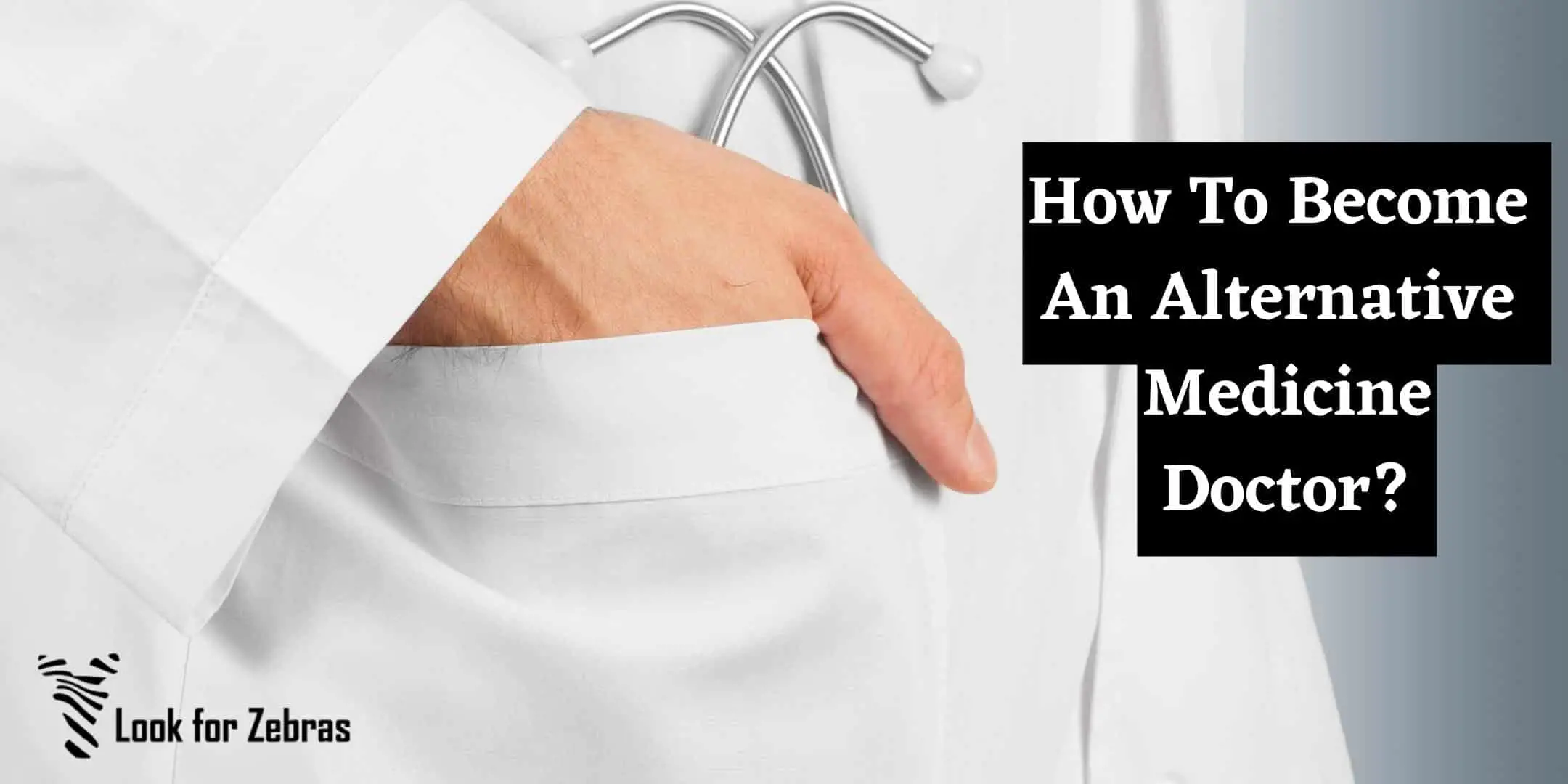Published by Lookforzebras
From Ayurvedic practitioners to naturopathic doctors, the world of alternative medicine is vast, with multiple avenues for prospective practitioners to explore. Despite this exciting field’s sheer breadth, alternative medicine remains a fairly obscure niche within the greater medical world.
Indeed, though there are many people who would make for excellent alternative medical doctors, the lack of information surrounding this field prevents them from breaking through. This is an issue throughout the entire Western world but is especially prevalent in North America, where such practices are often treated with ridicule and scorn.
Nevertheless, if you find yourself interested in a career in alternative medicine, do not be dissuaded by this lack of knowledge and understanding.
What is Alternative Medicine?
Despite the skepticism surrounding it, alternative medicine is highly respected in certain parts of the world due to its roots in ancient traditional cultural practices and values. However, in modern-day terms, alternative medicine can roughly be defined as any form of treatment or therapy that is used in place of more mainstream treatments (i.e., Western medicine).
Of course, alternative medicine offers a diverse range of therapies, most of which focus on addressing a combination of the patient’s physical, mental, and even spiritual well-being (and often a combination of the three). These treatments are generally more integrated than their Western counterparts and use herbs, nutrition, and healthy practices to not only treat the patient’s ailments but also maintain their health over an extended period. The people who practice such treatments are sometimes referred to as holistic doctors.
What Do Alternative Medicine Practitioners Do?
Although every culture has its own set of treatments, in the Western world, alternative (holistic) doctors do not follow a single culture’s methods. Rather, they combine different alternative approaches and remedies from all over the world in order to provide the best possible treatment for their patients.
As mentioned, the sheer variety of alternative medical practices is staggering and includes such treatments as Chinese medicine, acupuncture, naturopathic medicine, herbal medicine, reflexology, and yoga. It is worth noting that some of these treatments are sometimes employed in conjunction with traditional medicine by Western medical doctors. This is referred to as complementary medicine.
Where holistic practitioners differ from their Western counterparts the most, however, is in their emphasis on the mental well-being of their patients, which is regarded just as important as their physical health.

How Do You Become an Alternative Medical Practitioner?
Despite the generally skeptical assessment of alternative medicine in North America and the Western world at large, becoming an alternative medical practitioner still requires plenty of work. Contrary to popular belief, practicing holistic medicine requires extensive knowledge of different treatments as well.
The path to becoming a great alternative medical practitioner is not for everyone, but if you think you have what it takes, there are a few steps for you to follow which will guide you towards your goal.
Step 1: Get a Broad Perspective
Being a holistic practitioner is not easy, and that is partly because of the sheer amount of responsibilities that you will be obligated to fulfill. For starters, you will need to integrate both traditional and holistic practices into your treatments. Additionally, you will constantly have to assess your patient’s emotional, mental, physical, and spiritual well-being in order to determine the best course of treatment and administer the proper medications.
Generally, practicing alternative medicine requires a hands-on approach through the use of treatments such as acupuncture, massage therapy, or reflexology. However, you will also need to be able to offer counseling, and many patients will require a healthy dose of nutritional guidance, stress management practices, or guided image therapy sessions in addition to other treatments.
Of course, before any of this, you will first need to get your hands on some qualifications. While it is true that alternative medical doctors do not need to complete a doctorate in order to practice, they are required to complete at least a few training programs and pass a certification exam. Moreover, depending on the type of treatments you offer, you may also need to complete either a graduate or undergraduate program or another advanced degree.
Lastly, most alternative medical practitioners are also nurses or physicians by trade, and in order to compete with them, you will also need a state license and a board certification.
Step 2: Choose Your Field
There are many, many avenues to pursue in the world of alternative medicine – fortunately, you are not required to follow them all.
Before you set about earning the necessary qualifications, spend some time deciding on the area you think you would work best in. There is always time to change fields later, but having a good grip on what you want to pursue will help keep you motivated when the going gets tough (and it will).
There is a wide range of therapies to consider, including (but not limited to): herbal remedies or botanical medicine, naturopathic medicine, nutrition, acupuncture, and neuropathy.
Step 3: Complete Your Chosen Program or Degree
When it comes to holistic programs, you have a surprising amount of choice when it comes to the courses you pursue. Holistic health certificates and holistic health practitioner degrees are available at the bachelor’s and master’s levels.
Your options include the following:
- Certificate in holistic health
- A minor in holistic health in conjunction with a degree
- A Bachelor of Arts in Complementary and Alternative Health
- Bachelor of Health Science, with a concentration in specific treatments
- A Master of Arts in Holistic Studies
For those who do not seek to solely pursue their holistic endeavors, you can take courses to earn your Certificate in Holistic Health or complete your degree with a minor in holistic health. Of course, you should be aware that – depending on the course you choose – you may be required to have completed prerequisite classes, such as human anatomy and physiology.
Conclusion
Alternative medicine is not a widespread medical option for those interested in the medical sector. It is still trying to find a solid foothold in the mainstream, but so long as people such as you, dear reader, remain interested, such practices will eventually get the respect they deserve.
Although this can be disheartening given the amount of time and effort required to become an alternative medical doctor, it is important that you remain steadfast and take the challenge head-on. There are so many people who will reap the benefits of your effort and commitment, and that is what you are doing this for at the end of the day: to help people. We hope you now know how to move forward in this rewarding career.

